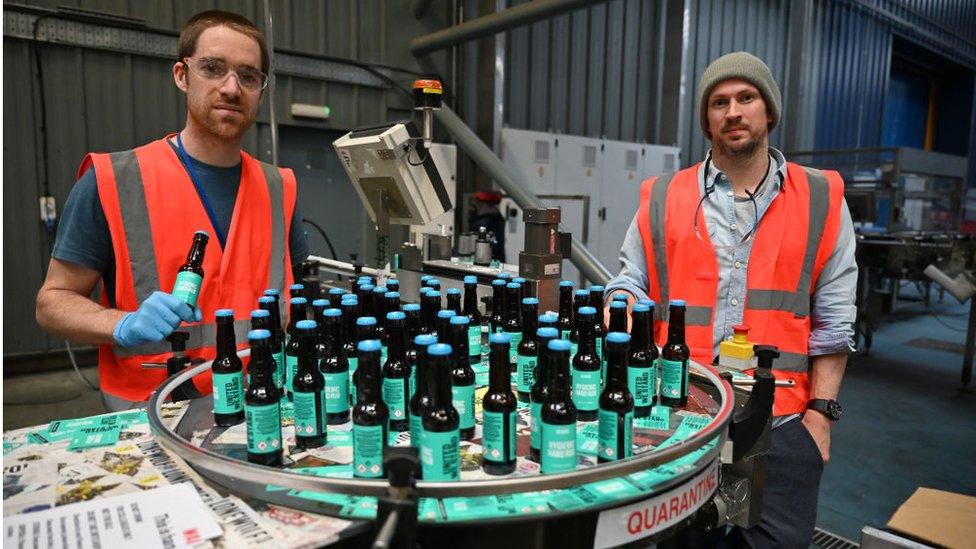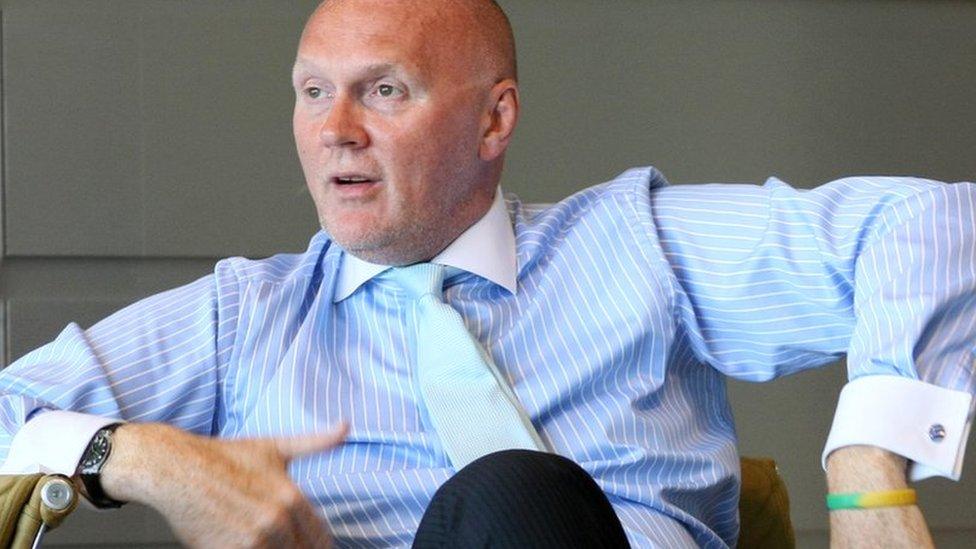Brewdog: Bosses say management issues are in the past
- Published

Bosses at Brewdog have said there is a "distinct gap" between the perceptions of ex-staff who heavily criticised the brewer and those still with the firm.
It follows a review of the craft beer firm's work practices, after 60 ex-staff accused it of fostering a "toxic" and misogynistic work culture.
In a letter to employees on Tuesday, board members said "the vast majority" enjoyed working at the firm.
But they accepted mistakes were made and the firm could improve.
And, in a separate post on Linkedin, external, James Watt, chief executive and founder of Brewdog, said he took "personal responsibility" for the shortcomings.
In June, former employees of the craft beer maker said that a significant number had "suffered mental illness as a result of working at Brewdog".
In an open letter published online, they claimed the firm was built on a cult of personality around founders Mr Watt and Martin Dickie.
And they accused it of fostering "a culture within craft beer that deifies founders, and gives weight to sexist and misogynistic brewers who claim to be standing up for free speech".
Following an independent review into the complaints published this week, Brewdog's chairman and deputy chairwoman, Allan Leighton and Blythe Jack, said they didn't "subscribe to the characterisation".
In their letter to staff, they said a "major theme" of the review was that there was "a distinct gap in terms of perception between former crew and those still with the business".
'Sense of disaffection'
"Of course it's not perfect - no workplace is, but we were struck by the enthusiasm for the business and the excitement we all share about its future," they added.
They said staff had shown the "greatest sense of disaffection" during the company's "explosive growth period" from 2016 to 2018.
"In short, Brewdog was growing so fast, but its processes and culture didn't adapt with it. Hence a lack of HR support, a lack of resource, underprepared leadership at all levels and limited understanding of roles, responsibilities and career development objectives," they added.
Mr Leighton, former chief executive of Asda and Pandora, told the BBC the review was "the most thorough piece of work" he had seen and was a "bit of a blueprint for how to tackle these things".
He said it was "not uncommon" for businesses which grow at a rapid pace to have issues with processes and culture and said this review had "drawn a line in the sand" and the firm could now move forward.
The fast-growing Scottish brewer and pub chain has enjoyed rapid success and now employs more than 2,000 staff. But it has also courted controversy with its marketing and commercial decisions.
Earlier this year James Watt said he would reflect on how to become a better leader
Consultancy firm Wiser, which advises and researches on corporate culture, was hired to produce the independent report following the heavy criticism.
The report said staff were "really passionate about the brand" but felt that the company's structure "hasn't matured in line with the company's growth".
It added that some current employees felt "uncomfortable speaking up and challenging", which was "partly related to [boss] James [Watt's] previous demanding leadership style and the way decisions were made in previous eras".
'Most important lesson'
In his Linkedin post, Mr Watt said the review process had been "an exhaustive, but hugely valuable exercise" and that he accepted its findings".
He said: "I have often said how I am still learning in this role - when we set Brewdog up we could never have imagined how quickly we would grow and before Brewdog I was working on a fishing boat.
"I accept I haven't always looked after our people as well as I should have done. It's been the most important lesson I have learned in my career thus far."
Brewdog said it had launched a "workplace code" for staff following the review, and also implemented several other changes.
These included a company-wide pay rise, the establishment of an employee representative group and the appointment of mental health ambassadors.
- Published11 June 2021

- Published10 June 2021

- Published13 September 2021

- Published16 July 2021
